Wii U: From confused mess to hardcore must-have in one day
How Nintendo has laid the Wii to rest and given the Wii U a new hardcore identity of its own
From its announcement at E3 2011 right up to Wednesday’s Nintendo Direct presentation, I’ve looked upon the Wii U as a theoretical console; a machine that physically existed but which had no determined identity, direction, or market. The innovative touch-screen pad and local multiplayer focus, although a lot of fun, were too confusing and potentially too expensive for the casual market they courted, and nigh-impossible to explain. The machine had a great ‘proper’ controller, too, as well as a supposedly hardcore launch line-up, but in reality its rag-tag bunch of non-exclusive and often aged games weren’t convincing anyone that the machine was a must-buy for the core gamer.
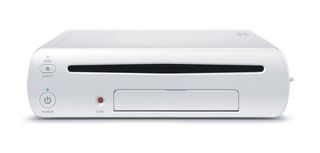
But on Wednesday all of that changed.
You see Wednesday’s Nintendo Direct was a definitive battle-cry, as the Wii U finally chose a direction. The console boldly broke from the cover of its confusion cocoon and sprinted proudly into the fields, bellowing of guns and swords and mushrooms and combos as it went. Wednesday was the Wii U’s coming-out party. After a clumsy, awkward start in life, the Wii U has discovered what it is. And what it is is a proper, honest to goodness, hardcore video games console.
This isn’t just about the undoubtedly core-focused line-up that was discussed, though let’s just recap that for a moment. New 3D Mario, new Zelda, , , new Mario Kart, new Smash Bros., whatever Monolith’s co-op mechs ’n’ guns monster shooter is, , Pikmin 3, and only one party game.

No, more than that lineup, this is about the way that Nintendo presented both the Wii U and itself. It delivered the Wii U not as a generic family entertainment device, but as a games console. It didn’t talk about ‘software’, as it has for so long. It talked about ‘games’. It spoke not of consumers and families, but of an engaged gaming community who want more games than it, on its lonesome, probably can make. It spoke of the need to service those players with a steady string of titles regardless. It spoke directly to those players with honesty and respect about the need to ensure that the games coming from its workshop are quality is higher (surely a nod to the old, long-tarnished Nintendo Seal of Quality), and the necessity to court third-party developers in order to make those games happen.
In short, Nintendo addressed every criticism it has taken over the last five years, it made no excuses, and it pledged solution upon improvement upon reconciliation.
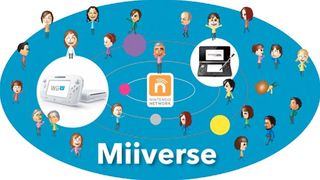
Mr. Iwata’s explanation of user-created communities for the Wii U’s Miiiverse network was the first telling move. Remember, this is the same Nintendo that once avoided the Internet altogether, and then mollycoddled its users with restrictions and choking online ‘safety measures’. Now it has a fully featured innovative social network in its home console and is giving its users control.
Sign up to the 12DOVE Newsletter
Weekly digests, tales from the communities you love, and more
The appearance of Twitter-style verified Miiverse accounts for companies and developers is a seemingly innocuous addition, but it’s a big deal ideologically, opening the Wii U’s community up to more external input and making a big reach toward third-party involvement. And don’t ignore the smartphone connectivity either. Such modern additions feel like they’re coming from a completely different company than the one Nintendo was a couple of years ago, the latter in particular speaking to its audience as engaged, passionate, tech-savvy lifestyle-gamers.
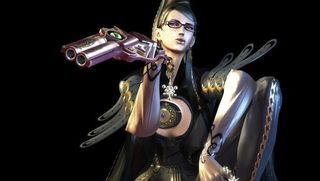
As for those third-parties--so often the crumbling bricks in the walls holding up any Nintendo machine--they were everywhere. Nintendo is fully aware of the symbolic importance of Bayonetta 2 (the niche, hardcore sequel to Platinum Games' much-loved brawler), and so ‘Netta was front and centre. More so, the format of the excellent Iwata Asks Q&As is changing, with the executive no longer just discussing internal games but also external studios. It’s clear that third-party games are a key part of Nintendo’s strategy going forward. Mr. Iwata gave his later tease of more third-party announcements as much time as he gave the entire 3DS format.
Speaking of that tease, the reference to news via future Nintendo Directs or 'other opportunities' must surely have been a veiled reference to E3. Iwata had already pledged the appearance of multiple big-hitting core games at the show (a playable 3D Mario alone would have been enough) and that’s damnably interesting. Nintendo famously stepped out of the three-way console arms-race at the start of the Wii years, but now here it is, publicly booking its big guns into that fight’s biggest arena. And doing so in January, way before either of the other two have even started referencing the show’s existence. Nintendo’s gloves are off and it’s stepping back onto the canvas.
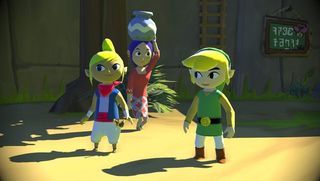
This week’s Nintendo Direct wasn’t just a corporate preview. It was an exorcism of the Wii-era disenfranchisement that still haunts long-time Nintendo gamers. It was better, more positive, and more exciting than either of Nintendo’s last two E3 press conferences. And it was the binary opposite of the few that came before those.
Where once Nintendo executives simply told core gamers to 'keep playing Mario Kart', now Nintendo literally states that it can’t do enough for its base. Where once Reggie passed off Animal Crossing as a big hardcore announcement, now Nintendo is bringing Japan’s brightest and best into the fold, and creating a game with Monolith Soft. that looks for all the world like a Japanese Borderlands.
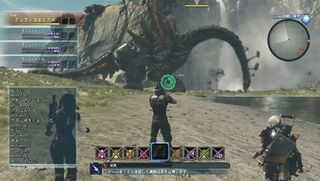
Things aren’t perfect yet, of course. Nintendo next needs to extend the third-party love to a few Western developers. Retro Studios’, maker of Metroid Prime and Donkey Kong Country Returns, has a track-record of excellence, but like Nintendo itself, it can’t produce enough of titles alone. But hopefully that was exactly what Iwata was talking about when he mentioned more third-party announcements to come. It would certainly be a wise assumption given the tone of everything that had gone before.
When thinking about this week’s Nintendo Direct, I can’t keep the old anti-Wii jibe of ‘GameCube 1.5’ out of my head. Because dropping the phrase’s negative connotations regarding horsepower, and instead applying the term positively to the culture of its games line-up, GameCube 1.5 is exactly what the Wii U feels like to me now. A brand-new, fresh, souped-up hardcore Nintendo games console equipped for the present and, more excitingly, the future.
I know the GameCube didn’t exactly manage that second part in terms of sustained market share, but that’s where the .5 comes in. If Nintendo’s focus on first- and third-party fun-times continues, then the Wii U will be a classic Nintendo console on its own terms regardless of anything the Xbox 720 and PS4 might eventually come up with. And personally that will be more than good enough for me for a very long time to come.
You know that kid at parties who talks too much? Drink in hand, way too enthusiastic, ponderously well-educated in topics no one in their right mind should know about? Loud? Well, that kid’s occasionally us. GR Editorials is a semi-regular feature where we share our informed insights on the news at hand. Sharp, funny, and finger-on-the-pulse, it’s the information you need to know even when you don’t know you need it.












